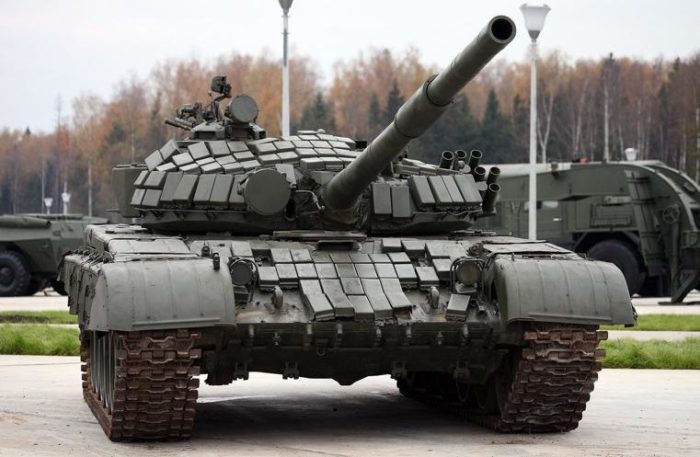Ukraine continues to effectively dismantle Russia’s costly military program. For instance, the Russian T-72 tank shown above was destroyed by Ukrainian defenders in the Zaporizhzhia Oblast. But what components of the tank are authentically Russian? Russian military equipment is comprised of imported parts. For example, this tank has an entirely foreign-built communication and control system board for GPS navigation. This article will examine what these components are, how the Russians use them, and how they end up in the Russian military industry.
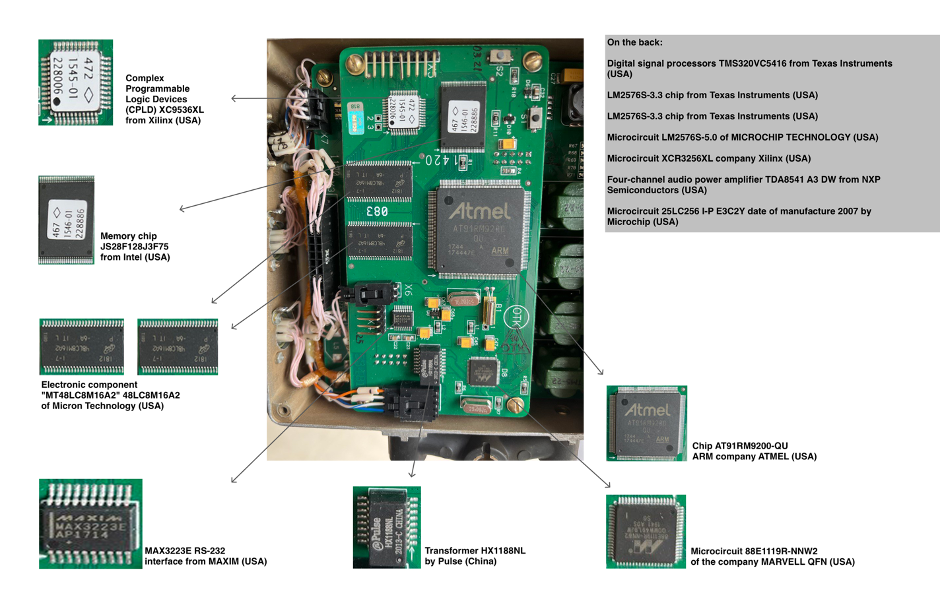
Russia is completely dependent on foreign microchips
The circuit board of the T-72 tank contains 14 components: 13 American and 1 Chinese. Not a single element of Russian origin. How is it that Russia spent millions of dollars developing its own microchips, yet Russian equipment incorporates components from its "sworn enemy," the United States?
The answer to this question is simple: the sheer lack of a domestic alternative. Russia has no capacity for microelectronics manufacturing. As a result, the country gambles on dependability and quality.
Why is the Russian defense industry still hunting for "loopholes" to use foreign microchips, notwithstanding the sanctions that the EU and the US have in place since the beginning of 2014, as well as the newly imposed restrictions?
Speaking in 2012 at Russia's Mikron plant, then-vice-prime minister of Russia Dmitry Rogozin announced that Russia will attain full technological independence in regards to military hardware components, namely microelectronics, and would manufacture them independently.
After ten years, the situation has drastically altered. According to a report by the Royal United Services Institute (RUSI), the defense and security think tank, more than 450 foreign-made military hardware components were discovered in Russian military equipment. As we can see, Rogozin clearly erred since Russiafully reliant on imported military hardware components.
The world’s largest semiconductor chip manufacturers, including Intel, have ceased all sales in Russia, including chips. However, Russia has approved gray imports and sees this as an effective measure for mitigating the repercussions of supply disruption.
Furthermore, Russia alleges that domestic information security system developers are causing supply disruptions by employing hardware components manufactured by foreign companies including Intel, AMD, NXP, and Texas Instruments. At the same time, they openly acknowledge that the supply of these components is carried out exclusively through alternative channels, namely gray import.
The aggressor state intends to launch its own Russian microchips manufacturing plant by 2030 in response to sanctions. In fact, Rogozin bragged in 2012 about Russia being technologically self-sufficient.
One cannot simply build a factory for microelectronics manufacturing. Such a plant requires a vast ecosystem (equipment, raw materials, and materials that are produced primarily abroad) and qualified personnel, the majority of whom have emigrated. The entire ecosystem will collapse if even one element from the list above is missing. Manufacturing cannot be completely isolated from the outside world. Therefore, there is only one way out -- gray import.
The introduction of sanctions against Russia has made it even more challenging to acquire microelectronics. Therefore, they resort to their usual tactics, which include coming up with novel "schemes" to acquire foreign chips for "parallel" import.
Russia’s regulatory circumvention scheme
The issue arises solely during bulk purchases when numerous chips are required. Here, Russia employs an established system of "supply chains" that was initiated during Soviet times. The Russians acquire chips in vast quantities via Hong Kong, the global "hub" of microelectronics, and local distributor companies.
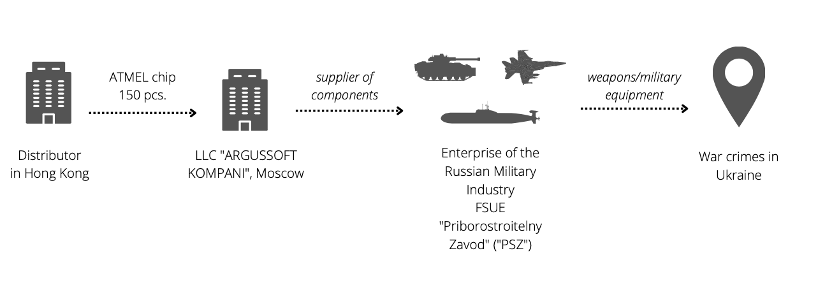
According to customs database records, in June 2021, the Russian company "ARGUSSOFT COMPANY" OOO purchased 150 chips AT91RM9200 QU-002 by Microchip Technology Inc (former ATMEL Asia Ltd) through a Hong Kong electronics distributor company.
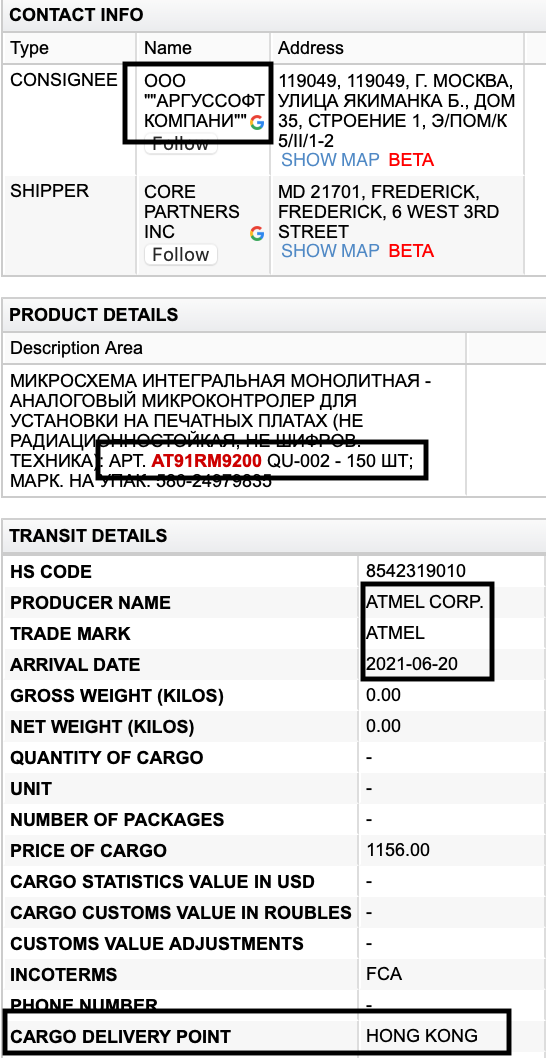
importgenius.com (this is a paid-for service)
The Russian company "ARGUSSOFT COMPANY" OOO supplies its products to the Volodin Instrument-Making Plant, one of the state-owned Rosatom’s leading enterprises of the state-owned Rosatom.
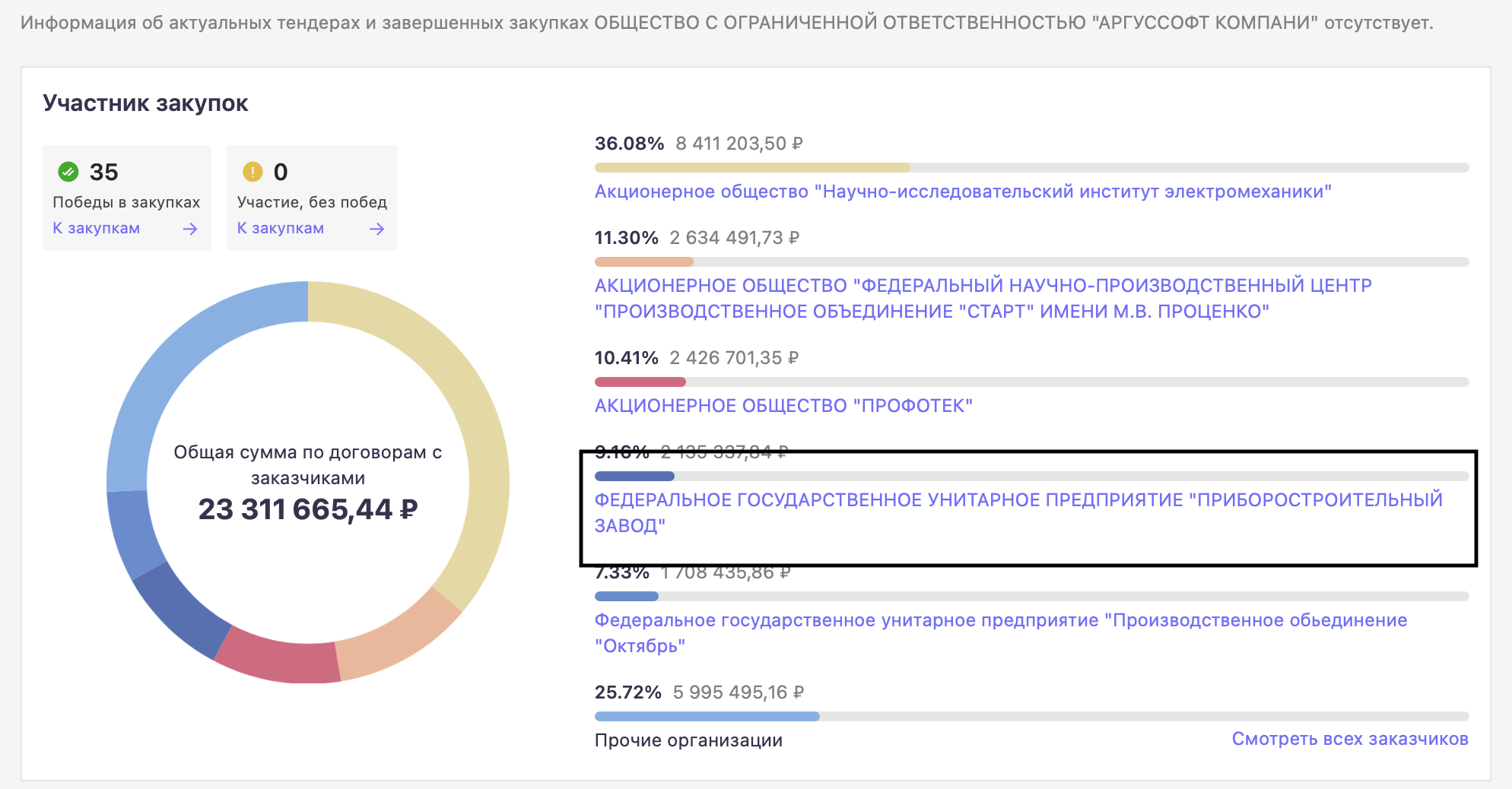
This plant implements Russian defense orders, as stated directly on its website.
Through this simple scheme, foreign chips end up in Russian military equipment electronics.
Tackling Russian scheme to evade microchips sanctions
As things stand, however, tackling Russia's regulations evasion scheme is riddled with challenges. Sanctions are meaningless without effective mechanisms for controlling the equipment.
The majority of these companies are situated in states with rather well-established regulatory policies. To prevent chips from entering the Russian military industry, governments should introduce "chip sanctions": mandate that manufacturers introduce stricter control mechanisms to regulate their chip distribution. The process of introducing stricter control measures may begin, for instance, with the unique labeling of each chip and modifying their distribution approaches.
To reiterate, Russian microelectronics are in extremely short supply, so they will attempt to import chips by any means possible. If companies do not want their products to be used in Russian equipment, they are obligated to review and strengthen export controls alongside governments, specifically through manufacturers and distributors. Thus, it will prevent the re-export of the components to Russia by third parties.
If Western countries and companies alter export control rules and dismantle Russia’s chip procurement networks, the military-industrial complex of Russia could be significantly weakened. Thus, we will advance the civilized world’s victory over terrorism.

Anton Mykytiuk is a member of the National Anti-Corruption Bureau of Ukraine Civil Oversight Council and an expert at the Economic Security Council of Ukraine.
Related:
- Some 450 foreign-made microelectronic components identified in Russian weapons recovered in Ukraine – RUSI
- 31 ways Russia evaded sanctions, boosting its war machine
- Russia’s milk sector was crippled by sanctions. Then British packaging company Mondi came to the rescue
- 10 tricks Russia uses to evade sanctions
- How to make sanctions really painful for Russia, immediately
- How Germany’s industrial giants help Russia manufacture weapons of war
- CEOs of Russia’s largest military concern are still sanction-free
- Iranian Shahed-131 drones have US-made components

